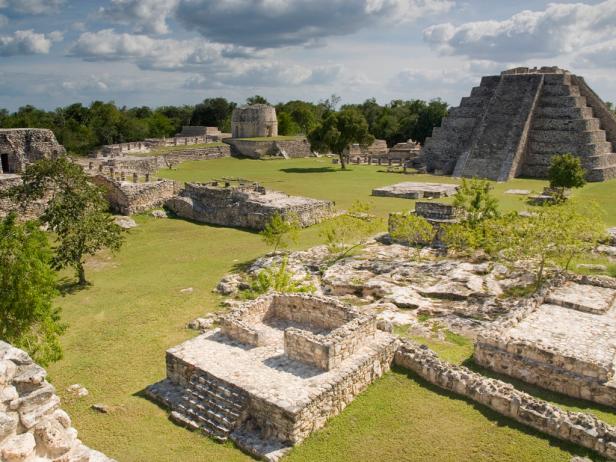Have you ever wondered what lies beneath the dense jungles of Mexico? Well, get ready to embark on a historical journey like no other as we explore the magnificent Mayan ruins of Mexico. From awe-inspiring temples to captivating pyramids, this hidden gem of history will leave you in awe. In this article, we will delve into the rich history and cultural significance of the Mayan ruins, and discover the top attractions that await you in Mexico.
When it comes to tourism in Mexico, the Mayan ruins are a must-visit destination. These ancient sites not only offer a glimpse into the fascinating Mayan civilization but also showcase the architectural brilliance of their time. From the iconic Chichen Itza with its iconic El Castillo Pyramid to the secluded Tulum overlooking the turquoise Caribbean Sea, you will be transported back in time. As you wander through the ruins, you can’t help but marvel at the intricate carvings and meticulous details of these structures. It’s a true testament to the advanced engineering and mathematical prowess of the Mayans. In our upcoming article, we will dive deeper into the history and legends surrounding these ruins, allowing you to fully appreciate the significance of each site you visit.
But the Mayan ruins are not the only reason to travel to Mexico. With its vibrant culture, picturesque beaches, and mouth-watering cuisine, Mexico has something to offer every type of traveler. Whether you’re looking to relax and soak up the sun on the sandy shores of Cancun or indulge in delicious street tacos in Mexico City, this country has it all. Join us in our next article as we explore the top attractions and hidden gems of Mexico, giving you a comprehensive guide to plan your next adventure. Stay tuned!

Introduction
Welcome to Mexico, a land rich in history and culture. Among the many wonders that await you in this beautiful country, the Mayan ruins stand out as a testament to the incredible achievements of the ancient Mayan civilization. From the breathtaking city of Chichen Itza to the coastal gem of Tulum, the jungle-clad site of Palenque, and the architectural marvels of Uxmal, you are about to embark on a journey of discovery through the magnificent Mayan ruins of Mexico.
The Rise of the Mayan Civilization
The Mayan civilization flourished in Mesoamerica from around 2000 BCE to 1500 CE. They inhabited the areas that are present-day Mexico, Guatemala, Belize, Honduras, and El Salvador. The Maya were known for their advanced knowledge in various fields, including astronomy, mathematics, writing, and architecture.
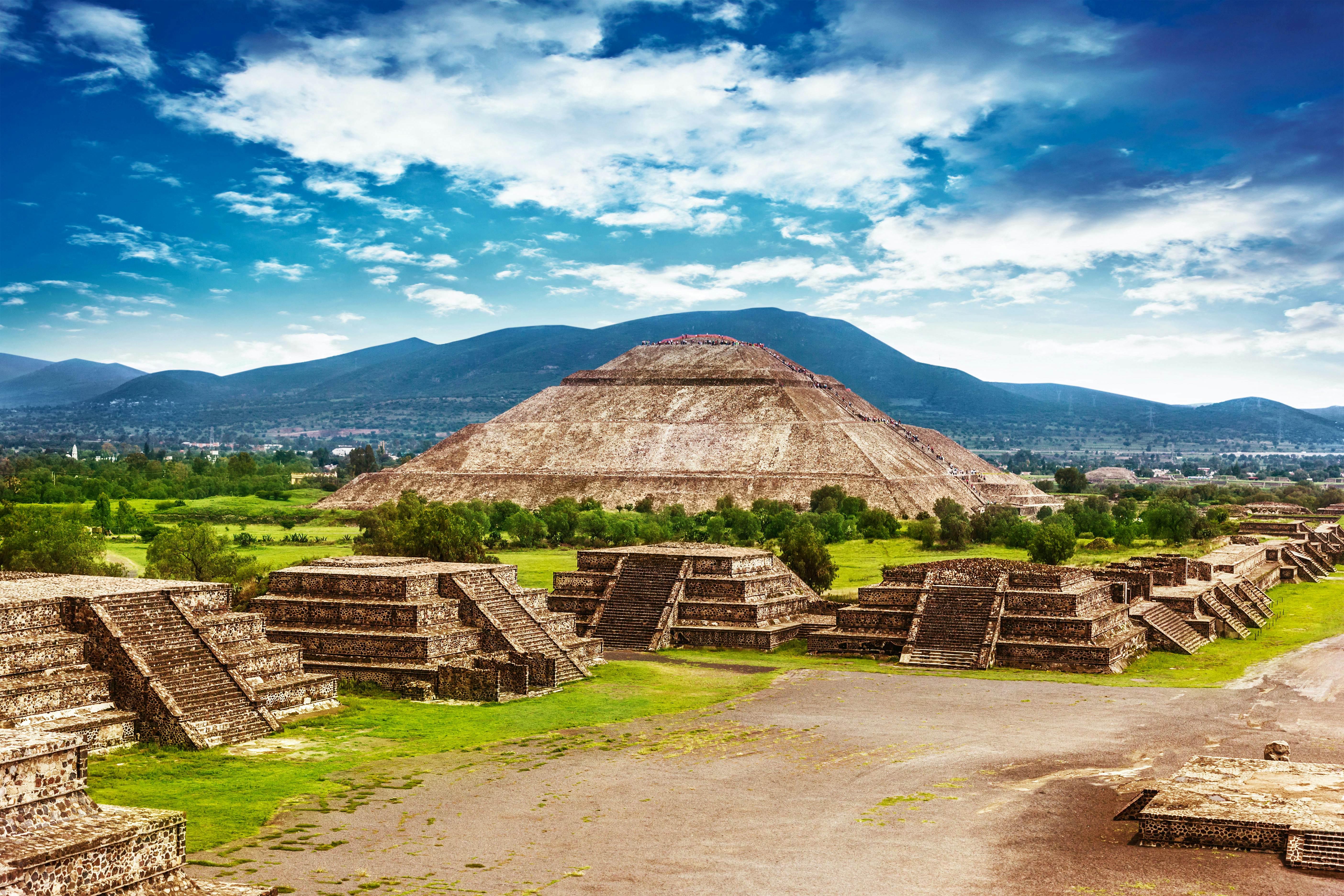
Mayan Culture and Society
The Mayans had a complex social structure and were organized into city-states ruled by powerful kings and queens. They had a well-developed system of agriculture, which allowed them to support a large population. Mayan society placed great importance on religion and spirituality, with ceremonies and rituals playing a central role in their daily lives.
Mayan Achievements in Astronomy and Mathematics
One of the most fascinating aspects of the Mayan civilization is their advanced understanding of astronomy. They were able to accurately predict celestial events such as eclipses and the movements of planets. The Mayans also developed a sophisticated mathematical system, including the concept of zero, which was revolutionary at the time.
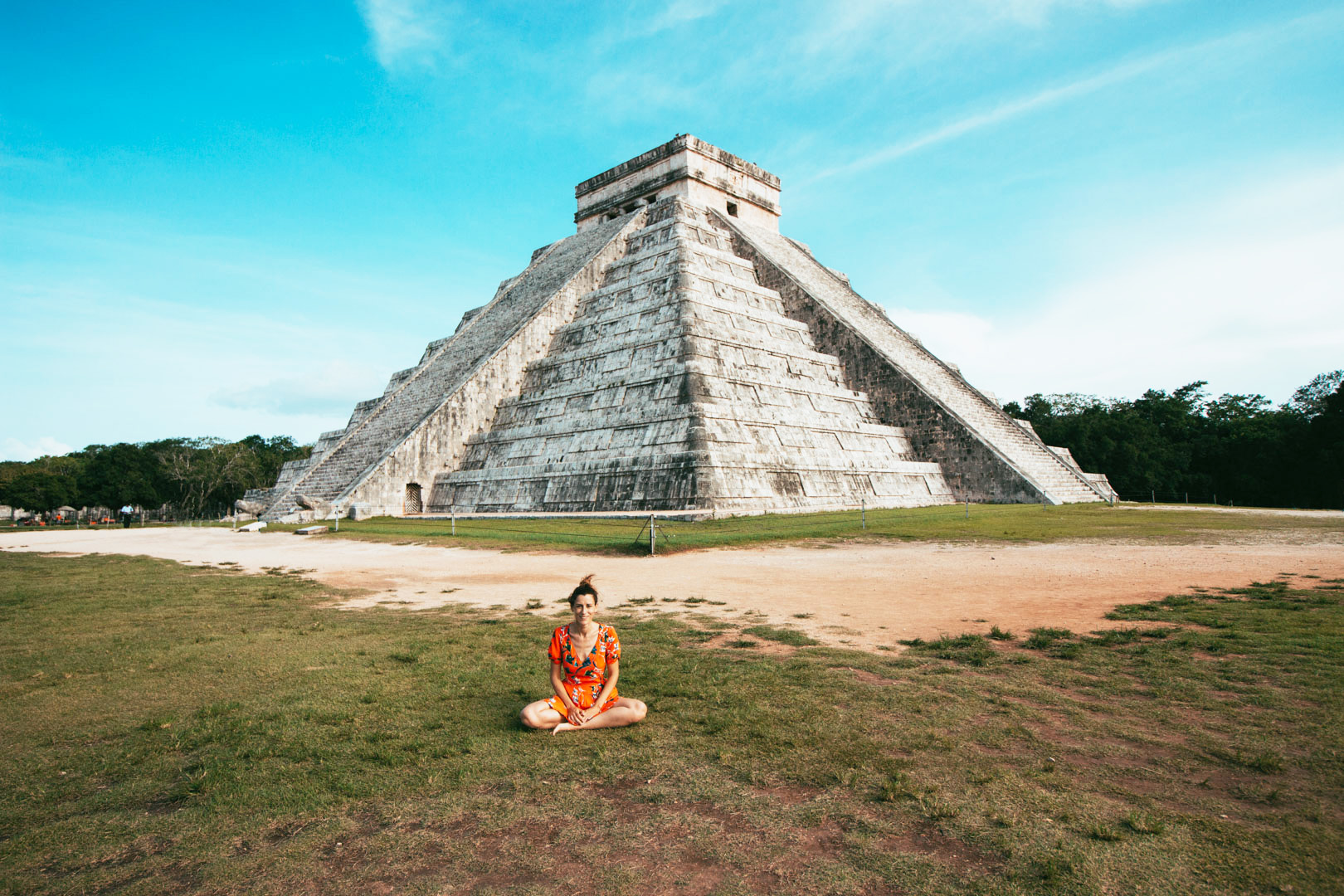
Exploring Mexico’s Mayan Ruins
Now, let’s delve into the heart of Mexico’s Mayan ruins and explore the architectural wonders left behind by this ancient civilization.
Chichen Itza: The Iconic Mayan City
Chichen Itza is perhaps the most famous and visited Mayan site in Mexico. Its iconic pyramid, El Castillo, is a symbol of the Mayan civilization and is now one of the New Seven Wonders of the World. The Great Ball Court, the largest of its kind in Mesoamerica, and the Sacred Cenote, a natural sinkhole considered sacred to the Mayans, are also highlights of this ancient city.
Tulum: A Coastal Mayan Gem
Situated on the stunning turquoise waters of the Caribbean Sea, Tulum offers a unique experience of Mayan ruins combined with picturesque coastal views. The city was a thriving port and played a vital role in trade during the Mayan era. The Temple of the Descending God and the Temple of the Frescoes are two notable structures that showcase the remarkable architectural skills of the Mayans.
Palenque: Lost in the Jungle
Palenque is a hidden gem nestled deep within the lush jungles of Chiapas. Discovered in the 18th century, this ancient city is known for its exquisite architecture and intricate stone carvings. The Palace, with its grandeur and elegance, and the Temple of the Inscriptions, which houses the tomb of the great ruler Pakal, are among the must-see attractions in Palenque.
Uxmal: Architectural Marvels
Uxmal is renowned for its well-preserved structures, showcasing the intricate details and artistic achievements of the Mayan people. The Pyramid of the Magician, the most famous pyramid at Uxmal, has a unique oval shape and stands as a testament to the Mayan mastery of architecture. The Governor’s Palace and the Nunnery Quadrangle are also architectural marvels worth exploring.
Significance of Mayan Ruins
Visiting the Mayan ruins not only provides a glimpse into the past but also offers valuable insights into the Mayan civilization and their way of life.
Insights into the Mayan Civilization
The Mayan ruins provide a window into the rich and complex history of this ancient civilization. From their religious beliefs and practices to their social structure and daily life, exploring these archaeological sites allows us to understand and appreciate the Mayan culture.
Mythology and Religious Practices
The Mayans had a complex mythology filled with gods and goddesses, many of whom were associated with natural elements such as the sun, rain, and agriculture. The temples and ceremonial structures found in the ruins offer a glimpse into the Mayan religious practices, which were deeply intertwined with their daily lives.
Understanding the Decline of the Mayan Civilization
One of the enduring mysteries surrounding the Mayan civilization is its eventual decline. Various theories suggest factors such as environmental degradation, warfare, political instability, and the collapse of trade networks as possible causes. Visiting the ruins and studying their history may help shed light on this enigmatic period.
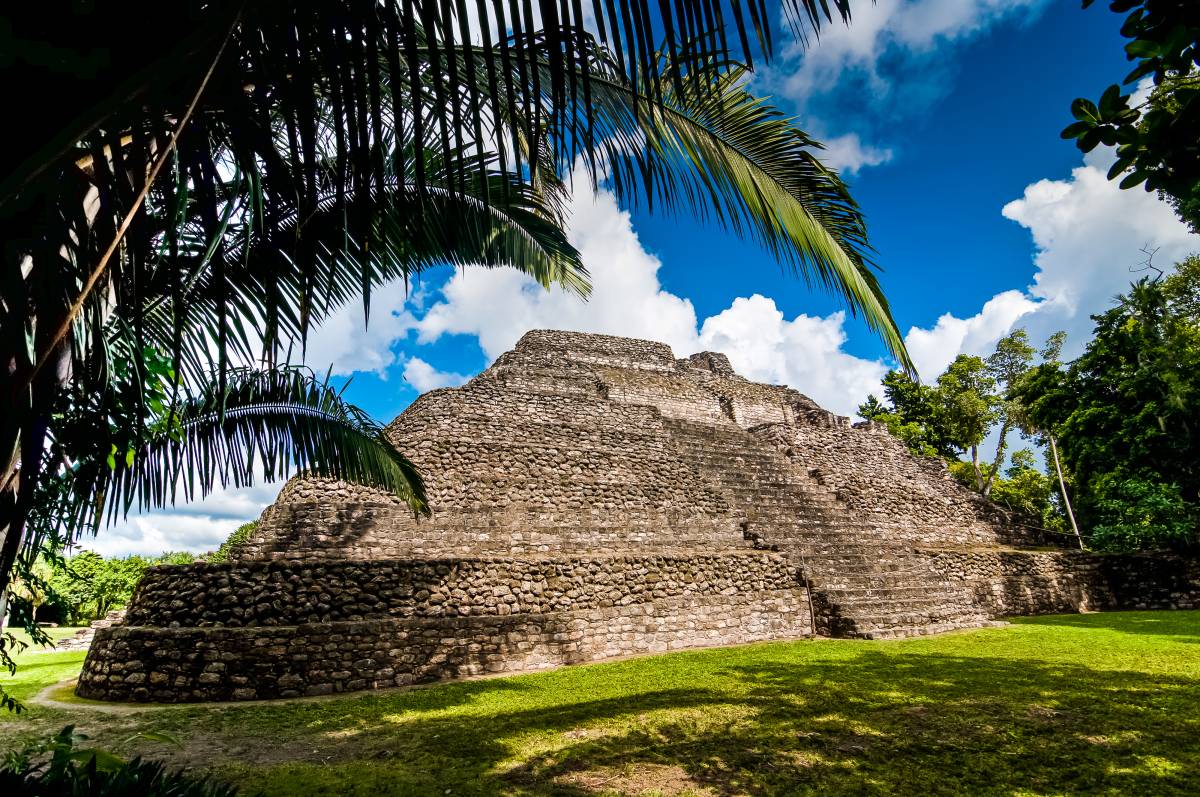
Preservation and Restoration Efforts
Preserving the Mayan ruins is crucial to ensure their continued existence for future generations. Various initiatives and conservation strategies have been implemented to protect and restore these ancient sites.
Protecting Mexico’s Mayan Ruins
The Mexican government, along with organizations such as the National Institute of Anthropology and History (INAH), has taken significant steps to protect and safeguard the Mayan ruins. Strict regulations and guidelines are in place to prevent damage and ensure the preservation of these historical sites.
Conservation Strategies
Conservation efforts involve maintaining the structural integrity of the ruins, preventing erosion and weathering, and implementing measures to mitigate the impact of tourism. These strategies aim to strike a balance between allowing visitors to experience the ruins and preserving their authenticity.
Restoration Projects
Restoration projects, conducted by dedicated teams of archaeologists and experts, aim to restore ancient structures to their former glory. These projects require meticulous research and expertise to ensure historical accuracy while preserving the original materials and techniques used by the Mayans.
Exploring Beyond Mexico’s Main Ruins
While Chichen Itza, Tulum, Palenque, and Uxmal are the most well-known Mayan ruins in Mexico, there are many other notable sites waiting to be discovered.
Becan: The Fortified City
Becan, located in the state of Campeche, is known for its impressive defensive walls and moats. This fortified city showcases the military advancements of the Mayans and offers a unique perspective on their strategic capabilities.
Calakmul: The Hidden Kingdom
Calakmul, situated deep within the Calakmul Biosphere Reserve, was one of the largest and most powerful Mayan cities. Its remote location in the jungle adds to the sense of adventure and discovery, making it a favorite among intrepid travelers.
Ek Balam: Unearthing Ancient Mysteries
Ek Balam, in the Yucatan Peninsula, is a relatively lesser-known site but still holds great archaeological significance. The main attraction is the Acropolis, a towering structure adorned with intricate carvings that offer insights into Mayan mythology and symbolism.
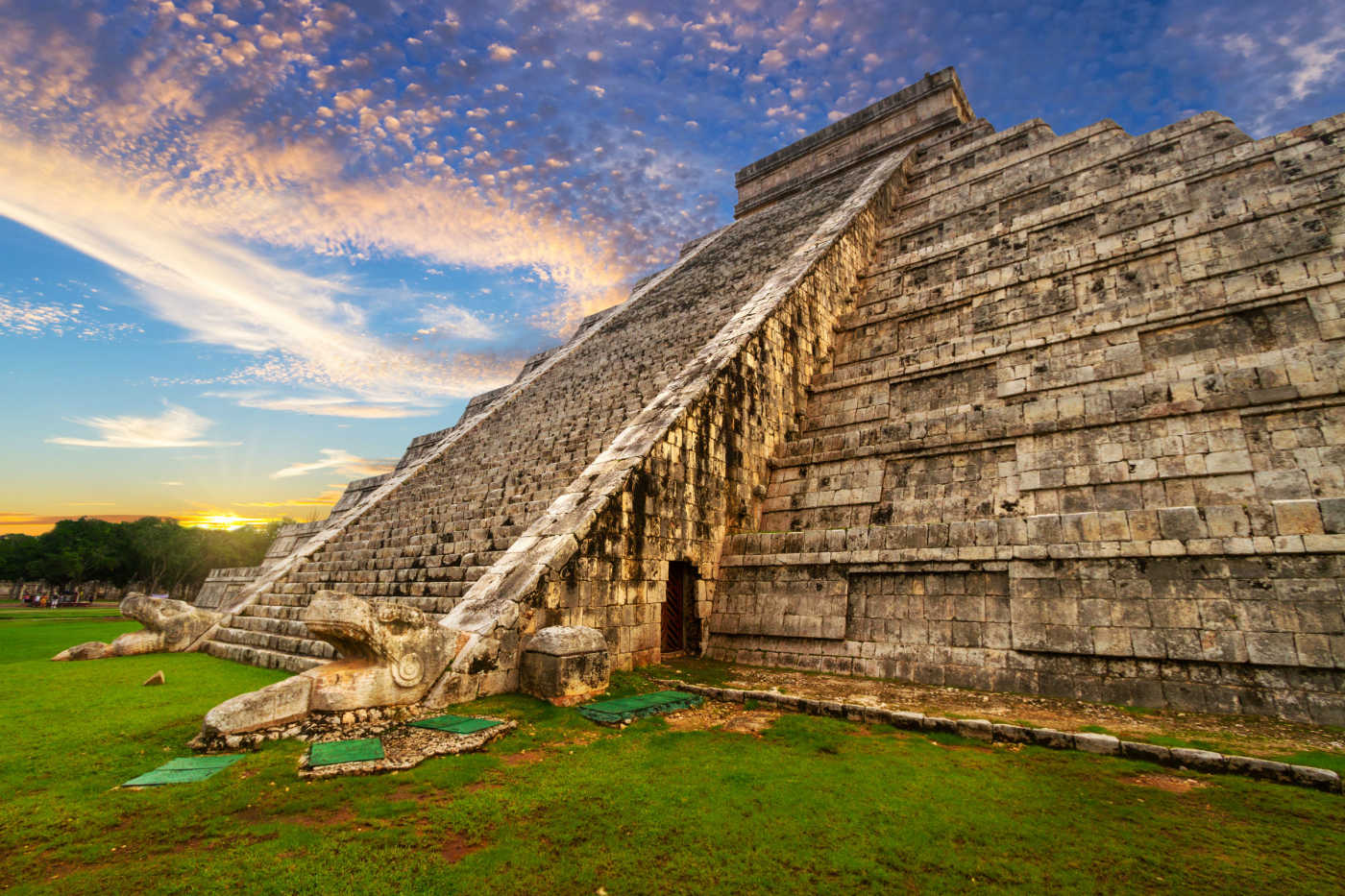
Mayan Ruins and Tourism
While tourism has brought attention and economic benefits to the Mayan ruins, it also poses challenges in terms of preservation and sustainability.
Impact of Tourism on Mayan Ruins
The increasing number of visitors to the Mayan ruins has both positive and negative consequences. On one hand, tourism boosts the local economy and promotes cultural exchange. On the other hand, it puts pressure on the fragile archaeological sites and their surrounding ecosystems.
Sustainable Tourism Initiatives
Recognizing the importance of responsible tourism, various initiatives have been implemented to minimize the impact on the Mayan ruins. These include limiting visitor numbers, enforcing strict regulations, promoting eco-friendly practices, and supporting local communities.
Responsible Exploration of Ancient Sites
As a responsible traveler, it is essential to respect the rules and guidelines set by the authorities when visiting the Mayan ruins. This includes avoiding touching or climbing on the structures, refraining from littering, and being mindful of the natural and cultural heritage of the sites.
The Enduring Legacy of the Mayan Ruins
The influence of the Mayan civilization extends far beyond its time. The architectural achievements, artistic expressions, and cultural heritage of the Mayans continue to inspire and captivate people around the world.
Influence of Mayan Architecture on Modern Design
Mayan architectural elements, such as the use of symbolic motifs and intricate carvings, have influenced modern design and architecture. From buildings to furniture, the Mayan aesthetic can be seen in various contemporary creations.
Mayan Art and Symbolism in Contemporary Culture
The intricate artwork and symbolism of the Mayans have found their way into modern culture. From fashion and jewelry to art exhibitions and films, the Mayan heritage continues to be celebrated and embraced in the present day.
The Ongoing Fascination with the Mayan Civilization
The Mayan civilization and its ruins have captivated the imagination of people for centuries. The mysteries surrounding their achievements, their decline, and their intricate calendar system continue to spur archaeological discoveries and fuel ongoing research and exploration.
Unlocking the Mysteries of the Mayan Ruins
Archaeologists and researchers are tirelessly working to unravel the secrets and mysteries of the Mayan civilization. Recent discoveries, along with advancements in technology, are shedding new light on this ancient culture.
Ongoing Archaeological Discoveries
New archaeological sites and artifacts are constantly being uncovered, offering fresh insights into the Mayan civilization. These discoveries challenge existing theories and expand our understanding of the complex history of the Maya.
Deciphering Mayan Hieroglyphs
Mayan hieroglyphs, the intricate system of writing used by the Mayans, have presented a significant challenge for scholars. However, progress has been made in deciphering these ancient texts, providing valuable information about Mayan history, mythology, and day-to-day life.
Unanswered Questions and Theories
Despite significant advances in our knowledge of the Mayan civilization, many questions remain unanswered. The reasons for their decline, the purpose of certain structures, and the precise meanings behind their rituals and ceremonies continue to intrigue and spur discussion among experts.
Visiting Mexico’s Mayan Ruins: Practical Tips
If you’re planning to visit Mexico’s Mayan ruins, here are some practical tips to enhance your experience and make the most of your journey.
Best Time to Visit
The dry season, from November to April, is generally considered the best time to visit the Mayan ruins, as the weather is more pleasant and rainfall is minimal. However, be prepared for larger crowds during this period.
Guided Tours vs. Independent Exploration
Both guided tours and independent exploration have their advantages. Guided tours offer informative insights and context, while independent exploration allows for a more immersive and personalized experience. Choose the option that suits your preferences and interests.
Practical Considerations for Visitors
When visiting the Mayan ruins, it is essential to wear comfortable clothing, footwear suitable for walking on uneven terrain, and sun protection. Carry sufficient water and snacks, and respect the rules and regulations set by the authorities to ensure the preservation of these historical sites.
Conclusion
Congratulations! You have embarked on a fascinating journey through the magnificent Mayan ruins of Mexico. From the iconic city of Chichen Itza to the coastal gem of Tulum, the jungle-clad wonders of Palenque, and the architectural marvels of Uxmal, you have witnessed the incredible achievements of the ancient Mayan civilization. As you reflect on your experience, remember to appreciate the rich history and cultural heritage preserved within these ruins and share your newfound knowledge with others. The Mayan ruins of Mexico are truly a treasure waiting to be discovered. Safe travels!
